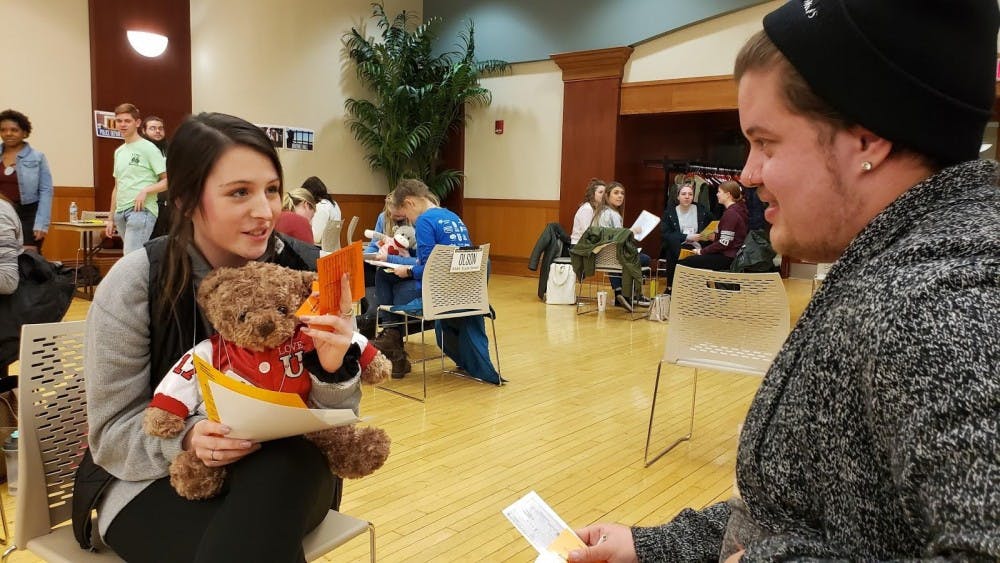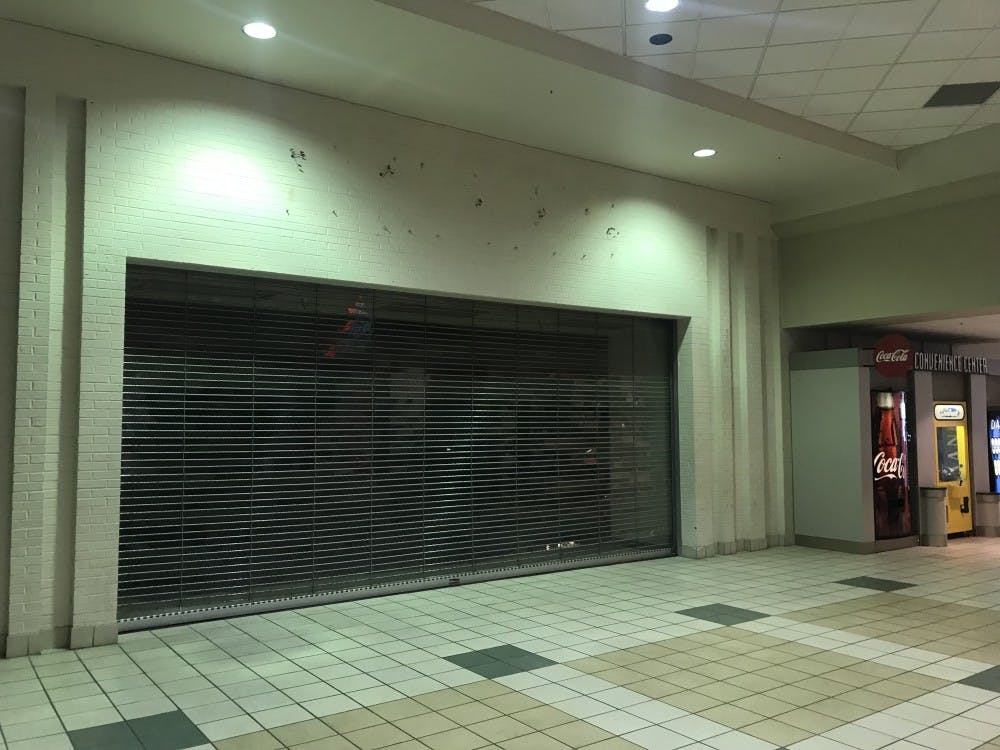Second Harvest Food Bank introduced Ball State students to a new perspective on people in poverty by placing them in the shoes of impoverished Americans for two hours at the L.A. Pittenger Student Center, 6 p.m., Wednesday.
The Poverty Simulation, which has been hosted at Ball State for more than 15 years, places students in the roles of impoverished and homeless people for two hours to show what life below the poverty line can be like in a variety of social settings.
“One of the things that we hear all the time is that we are better together, but we’re only better together if we do life together,” said Dorica Watson, the organizer of the simulator. “Understanding the prevalence of poverty helps us to better prepare for what we need to do in our community to make it better.”
Students participating in the simulation are placed in a variety of roles in Realville, a town made up of people living at the poverty line. Of the nearly 75 people in attendance, many were newcomers to the event looking to get a new perspective on poverty.
“I really don’t know [what to expect]. I think it’ll be an eye-opening experience, and I’ll learn a lot,” student Kendra Gancarz said.
The students were placed into roles of different ages, genders, socioeconomic standings and were given different financial situations for each role.
One student, Alesha Whittlesey, was given the role of “Warren Wiscott,” an unemployed 52-year-old disabled man with diabetes living off of his wife’s earnings and disability checks.
Time was of the essence in the simulation - one week lasted 15 minutes in real time, with short downtime periods for groups of participants to plan their next moves. In 90 seconds, Whittlesey cost herself most of her next week’s planning time and earned herself a penalty in the form of a random home break-in.
Many of the services in Realville were neglected entirely by participants that were barely keeping their head above the water financially.
“What I’ve experienced in the past [simulations] is that a lot of people don’t go to the doctor, even though they may have a chronic medical condition,” said Professor Nancy McWilliams, an Ivy Tech economics professor who was volunteering at the event as the town doctor. “I’ve sat here and not seen anyone at all.”
For instance, students were organized in families, with babies being represented by teddy bears that the Realville residents had to care for. Other participants were given roles with disabilities that brought additional disadvantages like increased medical costs.
Low-income and impoverished individuals are more likely to lack medical coverage than any other group in the United States, according to a report from the Department of Health and Human Services.
Realville featured many examples of disadvantages that low-income individuals live with, including larger life decisions like whether or not to purchase health insurance down to smaller, day-to-day tasks for participants to manage.
The poverty in Delaware County is much higher than the 2017 national average of 12.3 percent, at 21.2 percent as of the most recent five-year survey by the United States Census Bureau.
Though in recent years the poverty rate has fallen nationally, Watson said that generating awareness for poverty was necessary for its elimination in the United States.
“Maybe [poverty] will go away, or maybe it’ll be so bad that it’ll rip the fabric of our community so much so that we won’t be able to recognize it,” Watson said.
Contact John Lynch with comments at jplynch@bsu.edu.





